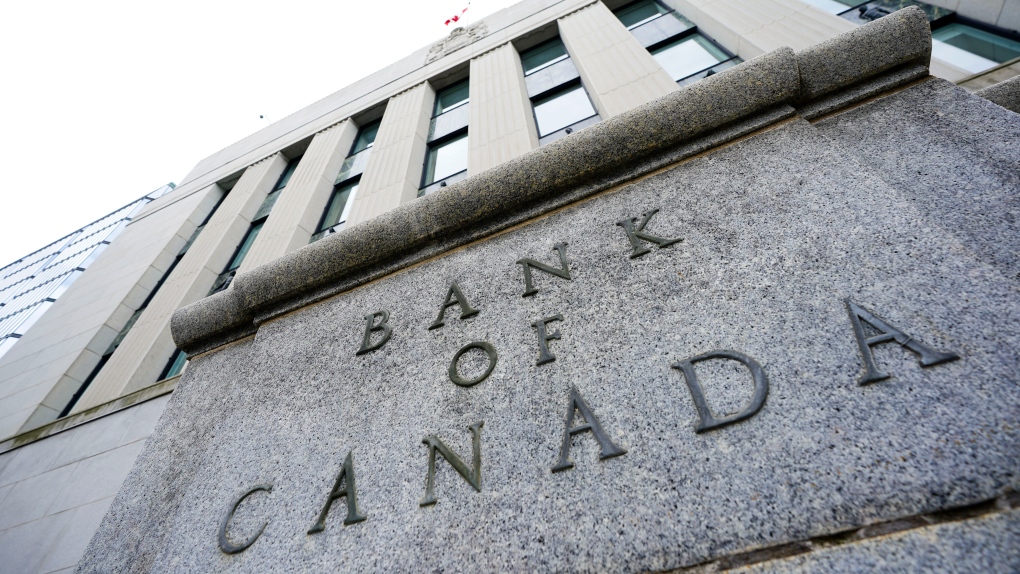With the latest inflation data showing no signs of a substantial cool-down, economists are forecasting the Bank of Canada will continue its reign of aggressive rate hikes, and some predict a “technical recession” during the first half of 2023.
Data released by Statistics Canada on Wednesday indicates that the consumer price index (CPI) is up 6.9 per cent year-over-year in September, despite economists previously anticipating a mere 6.7 per cent increase.
In an interview with BNN Bloomberg on Tuesday, Jean-Francois Perrault, chief economist at Scotiabank, said “there’s a limit to how much [the Canadian economy] can withstand.”
“You’ve got the pretty horrible situation in Europe. Obviously, China is going through a very significant slowdown — perhaps so significant that they decided yesterday not to publish economic data for a little while. And we got the U.S. where things are slowing and the Feds indicated that they want to raise interest rates quite a bit more and that will lead to a recession there.”
Perrault said that these economic pressure points make it increasingly more difficult for Canada to withstand recession fears, but he also pointed out that there is still a fair amount of resilience throughout various sectors of the economy.
“You can think of it as the economy kind of taking a breather for a few quarters,” he said. “The Bank of Canada is trying to engineer a cooling of the economy. It’s trying to slow inflation. So this slowdown that’s occurring is consistent with that, and hopefully helpful from an inflation management perspective as we look to inflation over the next year and a half.”
Here’s what other economists are saying about the recent inflation data and what is expected from the Bank of Canada as we approach 2023.
BANK OF MONTREAL
Bank of Montreal Chief Economist Douglas Porter said in a note to clients Wednesday that inflation did not ease as much as anticipated last month, “even as gasoline costs took a big step back.”
“Underlying inflation remains extremely persistent and sticky at above 5 per cent.”
He added that a weak Canadian dollar and a likely 75 basis-point hike from the U.S. Federal Reserve at its next meeting pave the way for a 75 basis-point hike.
TORONTO-DOMINION BANK
Leslie Preston, a senior economist and managing director at TD Bank, said in a release Wednesday that increases in the policy rate are starting to impact the economy. Inflation data, she said, emphasizes the need for a hefty 50 basis-point hike next week in the BoC’s overnight rate.
“We expect the bank is getting closer to a pause on rate hikes, once it reaches four per cent by the end of the year,” Preston said.
THE BANK OF NOVA SCOTIA
Derek Holt, a vice-president and head of capital markets economics at Scotiabank, anticipates the Bank of Canada to increase its policy rate by another 75 points next week, as he said in a note to investors Wednesday. He also mentioned that he had been supporting a 75 basis-point hike before the release of CPI figures.
“[Overnight index swap] pricing for next week’s BoC decision has moved from pre-data pricing around 60 bps to over 75 bps now as a three-quarters of a percentage point rate hike is now fully priced,” Holt said.
CANADIAN IMPERIAL BANK OF COMMERCE
Benjamin Tal, the deputy chief economist at CIBC, said in an email to BNN Bloomberg on Wednesday that he predicts a 75 basis-point hike from the central bank.
Karyne Charbonneau, an economist at CIBC, said in a note to investors Wednesday that the central bank continues to have “work to do” in its fight to effectively combat inflation.
“As such, we now believe the Bank will need to go with a 75 bps hike next week rather than the 50 bps we previously anticipated. The Bank might then be left with a last 25 bps in December if growth numbers support it,” Charbonneau noted.
With files from Daniel Johnson
Source link
Related

























